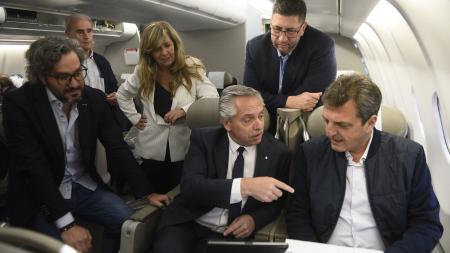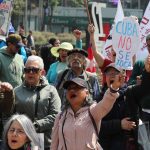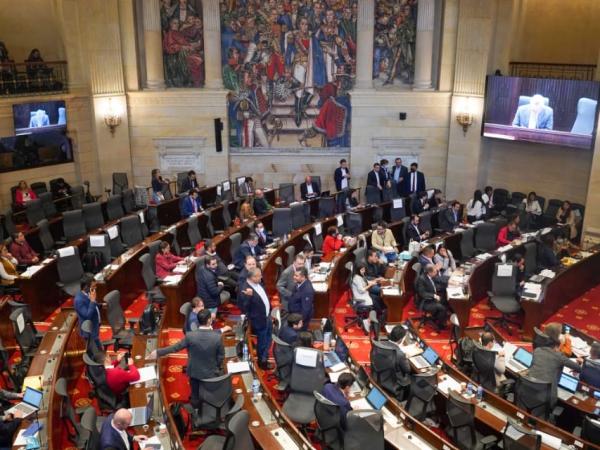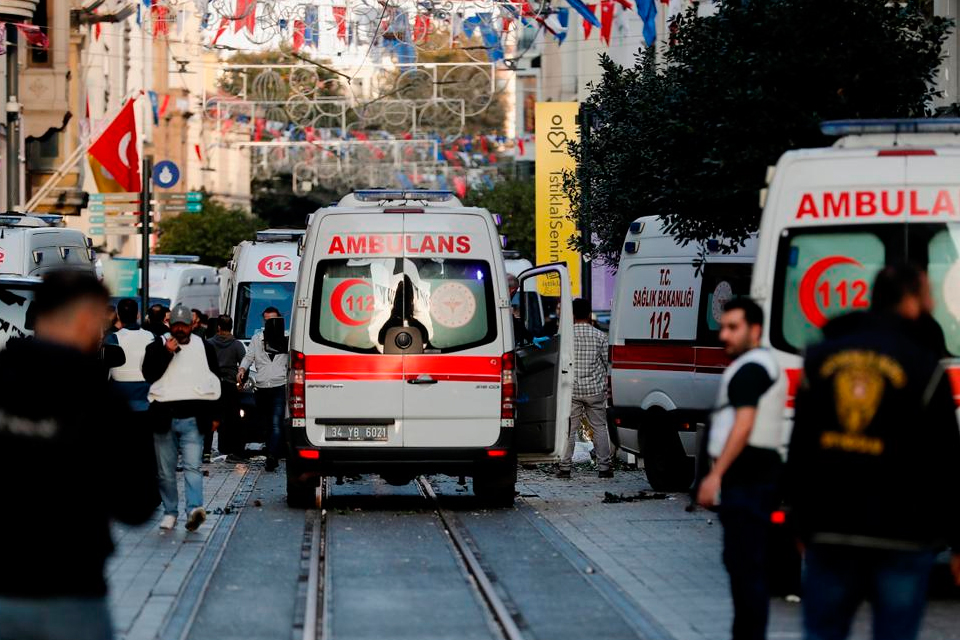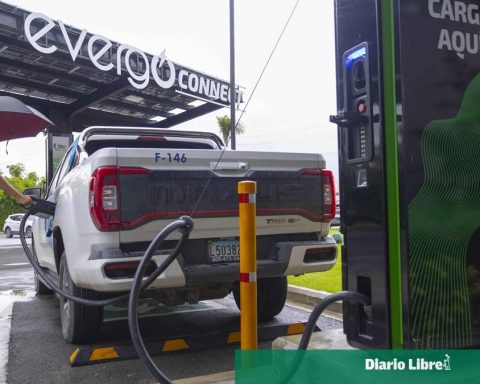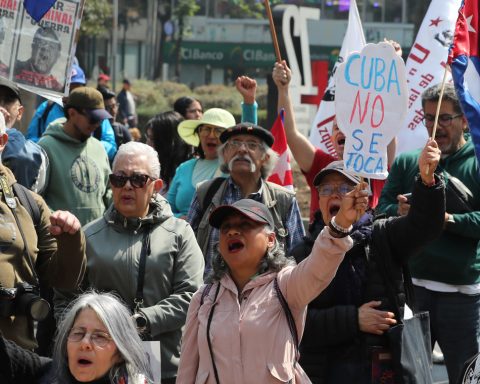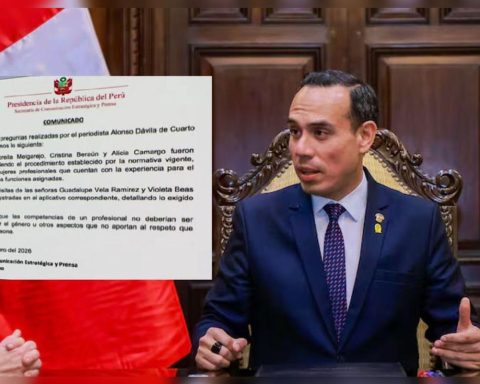President Alberto Fernández left this Sunday from France to Indonesia to participate on next Tuesday and Wednesday of the 17th. G20 Leaders Summit in Baliwhere he will carry the voice of Latin America, hold bilateral meetings and take part in a joint meeting of heads of state.
Aerolineas Argentinas flight AR1090 left at 6:07 p.m. local time (2:07 p.m. in Argentina) from the Paris-Charles de Gaulle Airport in Paris.
The president travels accompanied by Foreign Minister Santiago Cafiero; the Secretary General of the Presidency, Julio Vitobello; the Secretary of Communication and Press, Gabriela Cerruti, and the Argentine ambassador to the United States and G20 sherpa, Jorge Argüello.
Fernández had lunch with his entourage at the residence of the Argentine ambassador to France, Leonardo Costantino. Also present were the Minister of Economy, Sergio Massa, and the Deputy Chief of Staff, Juan Manuel Olmos, who joined today.
Then, the president offered an interview with France TV to take stock of the tour of the Gallic country.
Meanwhile, the first lady Fabiola Yáñez went to Rome to participate in various meetings, official sources reported.
On Monday at 4:00 p.m. in Italy (12:00 in Argentina), Yáñez will participate in the Trophies for Peace award ceremony, organized by Scholas Ocurrentes, with Pope Francis, in the Vatican.
And on Tuesday at 10 local time (14 in Argentina), Yáñez will meet with the director of FAO together with the Argentine ambassador Carlos Cherniak.
The G20 Summit
At the 17th G-20 Leaders Summit in Bali, where he will bring the voice of Latin America, Fernández will hold bilateral meetings and go to a joint meeting of heads of state organized by US President Joe Biden.
The summit, whose central motto is “Recover together, Recover stronger”, after the end of the Covid-19 pandemic, will have three work sessions, dedicated to food and energy security, health and digital transformation.
In terms of food security, Argentina has a strategic role, both in the region and in the world, as a reliable supplier of food, and its production capacity is much higher than what is necessary to satisfy domestic consumption, sources said. Chancellery.
However, according to the considerations of the Executive Power, in order to continue increasing this production, it is necessary to move forward with infrastructure works that allow expanding the arable land without affecting the environment, avoiding the global imposition of environmental regulations such as barriers to trade and urging the cooperation to expand food production in other countries.
In terms of energy, Argentina has conventional and unconventional resources -oil and gas- and is in a position to become a renewable energy generation pole.
The location of investments will also be key in this sector, both in infrastructure to achieve energy self-sufficiency and to become an exporter and, in this way, collaborate with energy security in the region and the world, the spokespersons added.
In the health section, the Government believes that it will be important to highlight the seriousness of the situation experienced during the pandemic in the region.
According to figures from the Economic Commission for Latin America and the Caribbean (ECLAC), 8% of the world’s population lives in that region, but 27% of deaths from Covid were recorded; and at the same time there are specific capacities in sectors such as biotechnology, pharmaceuticals and the production of medical equipment.
Fernández will also take the opportunity to bring the voice of Latin America and the Caribbean to the G20 Leaders Summit, a task that he has been carrying out since the beginning of the pro tempore presidency of CELAC, last January.
In that aspect The Argentine delegation considers that there are three issues that work as common denominators to improve the economic and social conditions of the region.
The first refers to promote the participation of the countries of the region in global value chains increasing the added value of its exports to obtain better results in terms of employment and to be able to strengthen its external sector.
The second refers to the need to increase financing for development and assistance for heavily indebted countries, in a particularly challenging global context due to the combined effect of inflation and contractionary monetary policies.
In third place, Fernández will underline the need to comply and increase the available financing to face the energy transition and new technologies with less impact on the environment.
In parallel, Fernández will hold a bilateral meeting with his Chinese counterpart, Xi Jinping, and another with the head of the International Monetary Fund (IMF), Kristalina Georgieva.
With Xi Jinping, Fernández will raise the possibilities of expanding the use of the Chinese Swap, which currently amounts to about 18,500 million dollars, but not the amount but the use, to see how much could be kept for reserves and how much for foreign trade.
Meanwhile, with Georgieva, the Argentine president will propose the reduction of surcharges, an issue that he discussed last Thursday with his French counterpart, Emmanuel Macron, at the bilateral meeting they held at the Elysée Palace, seat of the French government.
Macron himself, who will also meet with Georgieva in Bali, had promised Fernández to also raise this issue, which also involves Ukraine due to the war.
The Argentine president will also maintain “two or three more bilateral meetings to be confirmed” in the G20 framework, pointed out sources from the Presidency.
On the other hand, Biden summoned a group of countries with world infrastructure after the war, and Argentina is one of them, the only one in Latin America.
The others are Indonesia, India, Germany, Japan, South Africa, Australia, South Korea, Canada, Ukraine and the representation of the European Union, in addition to the United States.
The G20 presidency, currently held by Indonesia, decided that all presidents speak in the first session and then proposed that each leader choose to speak in the second or third session.
At the close of the leaders’ summit, the pro tempore presidency will pass to India.
In 2024 it will be in charge of Brazil and in 2025 of South Africa, which indicates a continuity of presidencies in charge of emerging countries, which will be beneficial so that the positions of these countries are taken into account.
